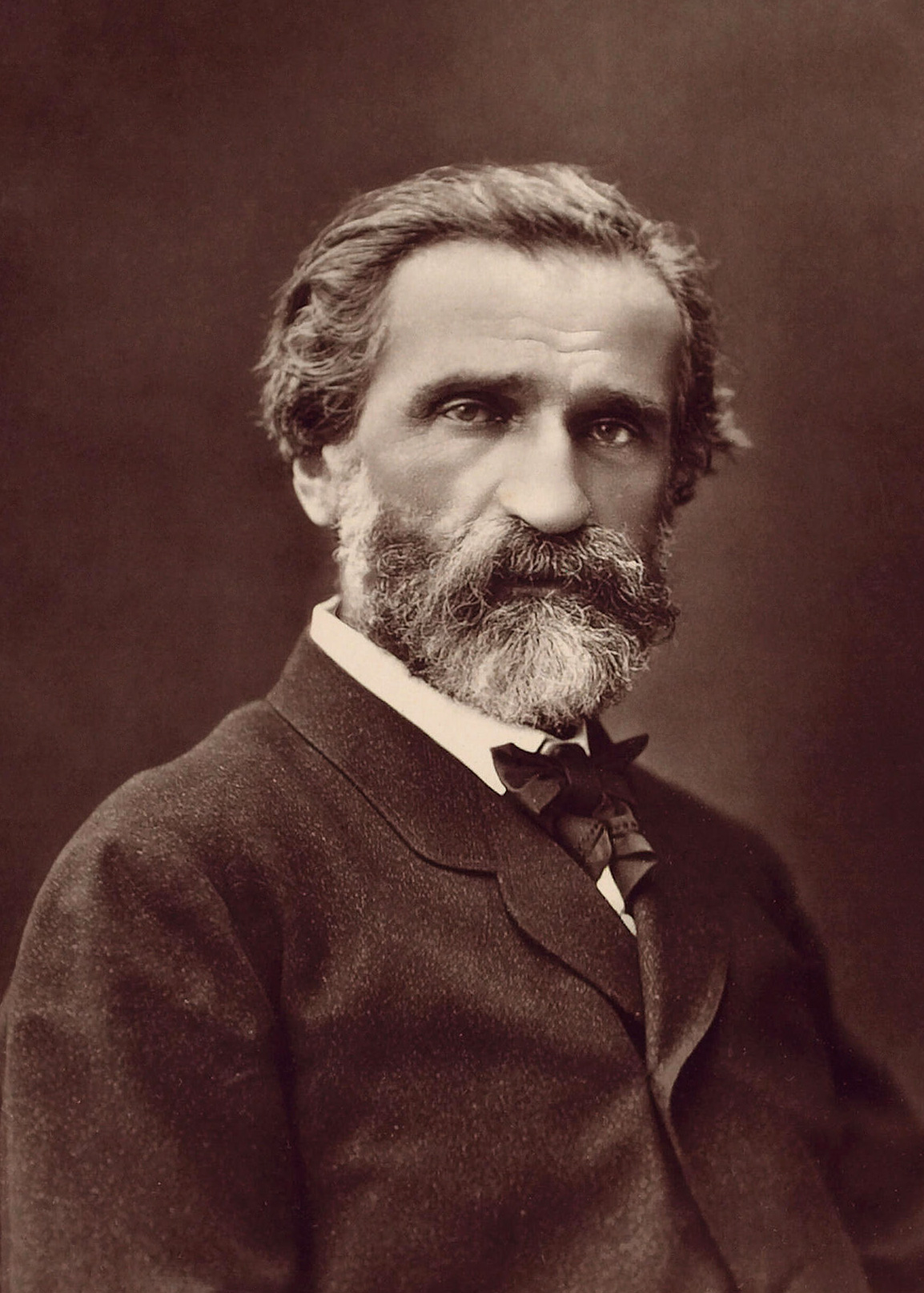Verdi, Giuseppe << VAR dee, joo ZEHP peh >> (1813-1901), was an Italian composer of operas. His works are performed more often today than those of any other opera composer. Between 1851 and 1871, Verdi produced a remarkable series of masterpieces, including Rigoletto (1851), Il Trovatore (1853), La Traviata (1853), The Sicilian Vespers (1855), Simon Boccanegra (1857, revised 1881), A Masked Ball (1859), La Forza del Destino (1862), Don Carlos (1867), and Aida (1871). Verdi wrote 26 operas. He composed all to Italian librettos (texts) except the Sicilian Vespers and Don Carlos, which he wrote to French librettos.

Aida: Prelude
Verdi gained fame for his mastery of theatrical effect and for the stirring melodic quality of his operas. He took several of his plots from the plays of such great dramatists as Victor Hugo, Friedrich Schiller, and William Shakespeare. Verdi wrote many melodies for soloists and small groups of singers. His operatic choruses remain familiar throughout the world.
Loading the player...Rigoletto (Questa o quella)
Verdi, a fiery Italian patriot, became a symbol of Italy’s struggle for independence from Austria during the mid-1800’s. He had frequent conflicts with Austrian authorities, who felt that his operas encouraged Italian nationalism. Much of the music of his early operas, particularly of Nabucco (1842) and I Lombardi (1843), became identified with the Italian nationalist movement.
Loading the player...Nabucco
Giuseppe Fortunino Francesco Verdi was born on Oct. 10, 1813, in Le Roncole, near Parma. He studied music as a boy in Busseto, a nearby town. He tried to enter the Milan Conservatory in 1832 but was rejected because he was too old and lacked sufficient formal training. Verdi began taking private music lessons in Milan.
In 1839, Verdi’s first opera, Oberto, was a success at its premiere at La Scala, the leading opera house in Milan. Between 1838 and 1840, his first wife and two small children died. The grief-stricken composer finished a comic opera, Un Giorno di Regno, which was a failure when presented in 1840. But his third opera, Nabucco (1842), made him the foremost Italian composer of his time. After completing Aida in 1871, Verdi apparently decided to end his career because of illness and age. During the next 16 years, his only important composition was a Requiem Mass (1874), written in memory of the Italian author Alessandro Manzoni.
Loading the player...Requiem Mass
Verdi returned to opera composing in the mid-1880’s through the urging of his friend Arrigo Boito, a noted Italian poet and composer. Boito contributed librettos for Verdi’s Otello (1887) and Falstaff (1893). Many critics have called Otello Verdi’s greatest tragic opera, and some consider it the greatest of all Italian operas. Falstaff was only Verdi’s second comic opera, but it ranks as one of the greatest comic operas ever written.
Verdi’s only works after Falstaff were four beautiful religious compositions for voices called Quattro Pezzi Sacri (1898). A period of national mourning was declared in Italy following Verdi’s death on Jan. 27, 1901. The Complete Operas of Verdi (1970) by Charles Osborne analyzes the historical, literary, and musical elements of the operas composed by Verdi.
